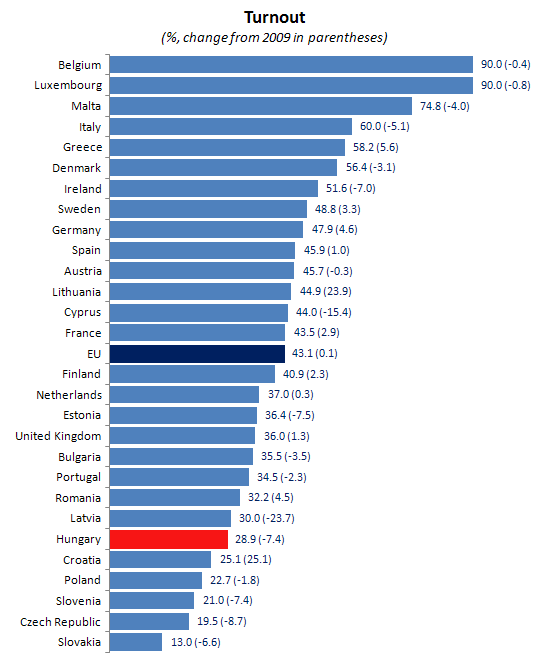Key findings:
1. The strengthening of extremism is an important signal, but the EU-committed “mainstream” remains strong. If the notion of the crisis becomes stronger within the EU, the prediction of “Europe will fall” can fulfill itself.
2. Since the Eurosceptic parties often admit their Russian commitment, it is an open secret that their larger proportion of mandates can definitely strengthen Russian influence in Europe. Besides the Russian world power and regional issues, these parties are staunch proponents of key Russian energy industry interests too.
3. The votes of the 12 Fidesz MEPs can be decisive in certain cases not only in the election of the EC President. Fidesz can use the narrow majority of the EPP for political blackmailing in the future too.
4. Despite the result of Együtt-PM and DK, which is better than expected, there is no significant realignment in the Hungarian right-left dichotomy. Fidesz still faces no challenger.
5. The second place of Jobbik is only a big success at one glance: it did manage to overtake MSZP, but the reason is that although the supporters of the left are a bigger group, their votes were distributed among three parties.
6. The race for the leading position on the left has inevitably started. It will greatly make the preparation for the municipal elections harder, because on several levels the only chance for them is to cooperate in order to win.
Download the analysis in pdf here.
The original was published on valasztasirendszer.hu.



















No comments
Be the first one to leave a comment.